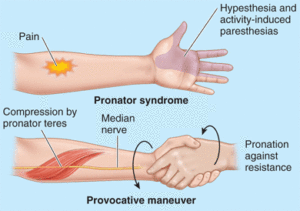Irritable bowel syndrome
Data: 4.03.2018 / Rating: 4.7 / Views: 595Gallery of Video:
Gallery of Images:
Irritable bowel syndrome
Irritable bowel syndrome (IBS) is a common, longterm condition of the digestive system. It can cause bouts of stomach cramps, bloating, diarrhoea andor constipation. IBS is thought to affect up to 1 in 5 people at some point in their life, and it usually first develops when a person is between. Irritable bowel syndrome (IBS) is a disorder that leads to abdominal pain and bowel changes. IBS is not the same as inflammatory bowel disease (IBD). Irritable Bowel Syndrome (IBS) is a common health disease affecting our lives. You should not miss out top effective home remedies for IBS in this article The symptoms of IBS are usually worse after eating and tend to come and go in bouts. Irritable bowel syndrome or IBS affects mostly women. IBS symptoms include diarrhea, constipation, and abdominal cramps. IBS treatments include diet and lifestyle changes and. Irritable bowel syndrome (IBS) is a health problem that many people have but few people talk about. People who are diagnosed with IBS experience chronic symptoms related to. The mornings with irritable bowel syndrome are the most challenging for Jeffrey Roberts. He feels like he needs to be near a bathroom at all times. Irritable bowel syndrome Also called IBS, this disorder is characterized by abdominal pain, cramping, bloating, gas, constipation, and diarrhea. Irritable bowel syndrome (IBS) affects between 618 of people worldwide. This condition involves changes in frequency or form of bowel movements and lower abdominal pain (1). Between 3 percent and 20 percent of Americans experience irritable bowel syndrome (IBS) symptoms. The condition affects more women than men. Irritable bowel syndrome (IBS) is a longterm condition that causes recurring pain or discomfort in the abdomen and altered bowel habits. Information from Bupa about the symptoms, treatment and causes of irritable bowel syndrome. Symptoms include abdominal pain and changes to your bowel habit. Irritable bowel syndrome is characterised by abdominal pain, bloating and alternating constipation and diarrhoea. The cause is unknown, but environmental factors such as changes of routine, emotional stress, infection and diet can trigger an attack. Treatment options include careful changes. Irritable Bowel Syndrome is whats known as a functional disorder, so an Xray of the gut would show no obvious problem and there is no single cause. Its thought that in people with IBS, the. Irritable bowel syndrome, or IBS, is anything but a graceful disease. It is a common disorder characterized by abdominal pain, gas, cramping, diarrhea, constipation, and bloating in the large intestine. Unlike irritable bowel disease, irritable bowel syndrome does not involve inflammation in the colon, nor does it cause changes in the tissue that may lead to colon cancer. Compare risks and benefits of common medications used for Irritable Bowel Syndrome. Find the most popular drugs, view ratings, user reviews, and more Irritable bowel syndrome (IBS) is a common, longterm condition of the digestive system. It can cause bouts of stomach cramps, bloating, diarrhoea andor constipation. Irritable bowel syndrome (IBS) is a functional GI disorder characterized by abdominal pain and altered bowel habits in the absence of a specific and unique organic pathology. Osler coined the term mucous colitis in 1892 when he wrote of a disorder of mucorrhea and abdominal colic with a high incidence in patients with coincident psychopathology. Irritable bowel syndrome (IBS) is a common chronic disorder characterised by altered bowel habits and abdominal pain, discomfort, bloating, constipation or diarrhoea or both. It is difficult to treat because no single cause has been identified. Irritable bowel syndrome (IBS) is the name given to a longstanding illness consisting of frequent abdominal discomfort and bowel symptoms that cannot be explained by. irritable bowel syndrome the most common disorder presented by patients with gastrointestinal complaints, consisting of (1) altered bowel habits with diarrhea, constipation, or alternating diarrhea and constipation; (2) abdominal pain and intolerance to flatus; and (3) absence of detectable organic disease. Many inappropriate terms have been. Irritable bowel syndrome or IBS, is a GI disorder with symptoms and signs of constipation, abdominal cramping and pain, bloating, gas, and abdominal discomfort. IBS treatment and management includes medications, diet that includes low FODMAP foods, and lifestyle changes. What is Irritable Bowel Syndrome (IBS)? IBS is a disorder that can be caused by foodborne illness from pathogens like Salmonella and Campylobacter. Irritable bowel syndrome (IBS) is a group of symptoms that occur together, including repeated pain in your abdomen and changes in your bowel movements, which may be diarrhea, constipation, or both. With IBS, you have these symptoms without any visible signs of damage or disease in your digestive. Irritable bowel syndrome (IBS) is a common digestive disorder characterized by abdominal pain, cramping, and changes in normal bowel function, including bloating, gas, diarrhea, and constipation. As many as one in five adults in the United States has irritable bowel syndrome (IBS). Irritable bowel syndrome (IBS) is a GI disorder that causes abdominal pain, bloating, constipation, and diarrhea. Learn about treatment, diet, and symptoms. Irritable bowel syndrome relief. Nonprescription supplement remedy offers safe allnatural IBS treatment for symptoms of diarrhea, constipation, gas bloating Irritable bowel syndrome (IBS) is a relapsing functional bowel disorder. Irritable Bowel Syndrome causes abdominal pain or discomfort. More about IBS Irritable bowel syndrome (IBS) is a chronic, relapsing condition characterized by the presence of abdominal pain and disturbed bowel habit. Symptoms of chronic constipation frequently resemble those of IBS. Irritable bowel syndrome (IBS) is a problem that affects the large intestine. It can cause abdominal cramping, bloating, and a change in bowel habits. Find out if symptoms of belly pain or discomfort associated with constipation could be Irritable Bowel Syndrome with Constipation (IBSC). For those with irritable bowel syndrome (IBS) who benefit from simple dietary modifications, it makes sense to adjust the diet and reduce intake of the offending food. It does not make sense to adopt unnecessarily limited diets. Irritable bowel syndrome (IBS) is a common condition, associated with a range of symptoms including abdominal cramping, bloating, diarrhoea and constipation. Irritable bowel syndrome (IBS) is a chronic condition of the digestive system. Its primary symptoms are abdominal pain and altered bowel habits (eg, constipatio It seems to us that you have your JavaScript disabled on your browser. The Irritable Bowel Syndrome or IBS Diet Plan also known as the Eating for IBS diet plan relieves all Irritable Bowel Syndrome symptoms. Irritable bowel syndrome (IBS) refers to a complex disorder of the lower intestinal tract. It is mainly characterized by a pattern of symptoms that is often worsened by emotional stress. It is not the same as inflammatory bowel disease, which includes Cro Irritable bowel syndrome (IBS) triggers include foods, drinks, drugs, stress, and other psychological factors. Foods that may trigger diarrhea in IBS are fatty foods, and gas producing foods (broccoli, onions, beans). Foods that may trigger constipation are chocolate, diary products, and caffeine. Find out about irritable bowel syndrome symptoms and diagnosis. Often, lifestyle changes help manage this common, chronic bowel disorder. The typical symptoms of irritable bowel syndrome (IBS) include abdominal pain, constipation and diarrhea. Although IBS is not dangerous, the symptoms can be very painful and bothersome. Here you can find information on the various treatment options and. Irritable bowel syndrome (IBS) is a fairly common problem with the way the large intestine (say: inTEStin) works. The large intestine (also known as the colon) absorbs water and nutrients from the partially digested food that enters the colon from the small intestine. Irritable bowel syndrome (IBS) causes abdominal pain, bloating, mucous in stools, and alternating diarrhea and constipation. It may be chronic or persistent, and symptoms frequently change. Irritable bowel syndrome (IBS) is a collection of symptoms such as cramping, abdominal pain, bloating, diarrhea, and constipation. Most people with IBS can ease symptoms with. Irritable bowel syndrome (IBS) is a group of symptoms that affect your large intestine. Common symptoms are pain, bloating, gas, constipation, and diarrhea. Irritable bowel syndrome (IBS) is a chronic disorder in which the intestines do not work normally. Other names for IBS are spastic colon or functional bowel disease. The consequences of the malfunction of the intestines is abdominal pain that is associated with constipation. Irritable bowel syndrome and inflammatory bowel disease can have similar symptoms, but IBS is less serious than IBD. IBS does not cause inflammation, intestinal bleeding, rectal bleeding, ulcers, permanent damage to the intestines, or complications that can occur with IBD. Irritable bowel syndrome (IBS) is a common disorder of the intestine, causing abdominal pain with constipation, diarrhea, or alternating periods of both. IBS is also known as spastic colon or spastic bowel (terms that have fallen out of favour now) and functional bowel disorder. It's sometimes mistaken for colitis, an inflammatory bowel disease that is actually a more serious condition. Dependable irritable bowel syndrome (IBS) causes, symptoms, support and treatment for digestive health sufferers, family and friends since 1987. An IBS community providing characteristics for diagnosis of symptoms and treatment, forums and chat rooms to talk about ibs, blogs, diet, resource links, brochures, medical tests, book list, penpals, meetings, research studies and a list of medications. Irritable bowel syndrome (IBS) is a common disorder that affects the large intestine. Signs and symptoms include cramping, abdominal pain, bloating, gas, and diarrhea or constipation, or both. IBS is a chronic condition that you'll need to manage long term.
Related Images:
- The haunted mansion
- Ava devine 3
- Wwwsex world com
- A very 3d harold
- Assassins creed unity trailer
- CRIMINAL MINDS S05 COMPLETE
- Hate story 2 720p
- Pretty maids all in a row
- Les miserables 10th anniversary
- Action movies 2014
- Nightmare before christmas 1993
- Night of museum 2
- Sin city 02 una donna per cui uccidere
- The last exorcism 2
- The Elephant Man
- Bougyakusareta tamashii no jukyou
- Midsummer nights dream
- Windows 81 serial
- Ccna exploration 40
- Legend of ali baba
- The iron king
- Blue lagoon 2012
- Microsoft office 2013 8
- Microsoft office 2010 activator
- Spartacus gods of the arena bitter end
- Naruto shippuden 347
- 300
- Nes rom pack
- Season 4 secret diary of a call girl
- Hart of dixie s03e19
- Anger management S02E71
- Transformers age of extinction dvd
- Naked and afraid s02e03
- Ncis los s06e01 720p
- Match of the day 2014
- Rizzoli and isles s05e04
- Death Comes to Pemberley
- Full of it
- Command and conquer pack
- The Day of the Jackal 1973
- The Conqueror 1956
- Windows 81 pro activator
- Perry rhodan french
- Singles future islands
- Aletta ocean in
- Depeche mode one night in paris dvd
- Heart smarts guts and luck what it takes to be an entrepreneur
- Kick hindi mp3 songs
- Endless love movie
- Up disney 720
- In the Foyer
- Frankie valli four seasons greatest hits
- Etat de siege
- Who dun who
- Modern combat 4 zero hou
- Page maker adobe
- The x factor uk s11e11
- Lovers of the sun
- IGo Primo 24
- Law and order
- Digit October 2014
- Kevin ayers odd ditties
- Hdtv discovery hd traveler
- Lights out 2010
- Twin peaks wild onion
- Highway man clip
- The script 2012 3
- The shining 2012
- Stan getz bossas and ballads the lost sessions
- Before and After 1996
- The secret armory of general knoxx
- Vista x64 updater
- Kuch Tum Kaho Kuch Hum Kahein
- Balkan beat box balkan beat box
- Wiz khalifa hol
- Matt kim
- Edge of tomorrow
- Dvd led zeppelin
- Star wars episode IV
- The first 48 s12e03
- Jimi hendrix signature licks
- The big bang theory 720p S07
- Koi no chikara
- Kaspersky internet security 2012












